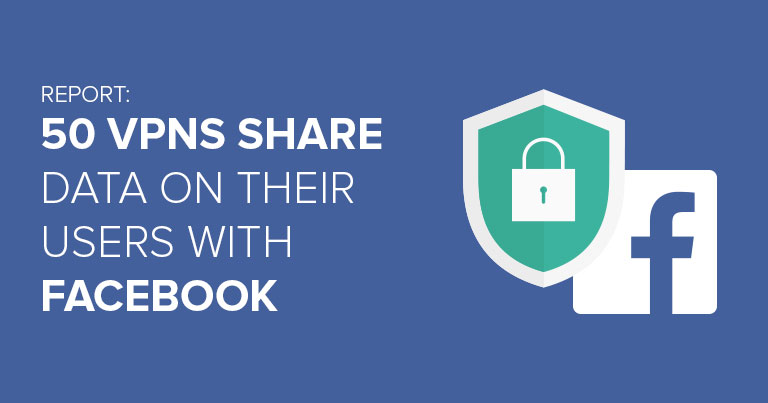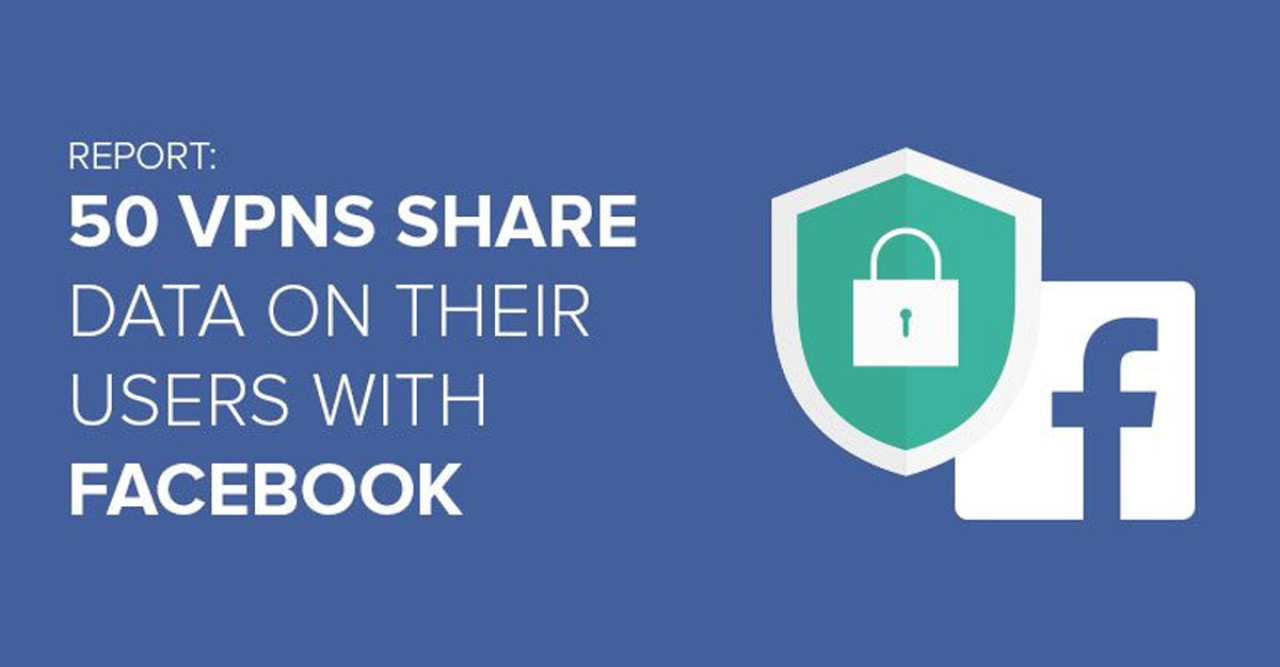50 VPNs share data on their users with Facebook. This sharing compromises user privacy and trust in VPN services. Many people use VPNs to protect their online privacy. They expect their data to remain confidential. Unfortunately, recent reports reveal that 50 VPN services have been sharing user data with Facebook. This data sharing undermines the primary purpose of using a VPN.
Users trust VPNs to keep their information secure, but this trust is now in question. To safeguard your privacy, it's essential to choose VPNs carefully. Look for providers with strict no-logs policies and transparent privacy practices. Always research and read reviews before committing to a VPN service. Your online privacy should be a top priority.
The Role Of Vpns
VPNs are essential tools for online privacy and security. Many people use them to browse the internet safely. But recent reports show some VPNs share user data with Facebook. This is a big concern for privacy lovers. Let's explore what a VPN is and its importance for privacy.
A VPN stands for Virtual Private Network. It creates a secure connection over the internet. This connection hides your IP address and encrypts your data. Think of it as a tunnel for your internet traffic. This tunnel keeps your information safe from prying eyes.
Privacy is a big deal in the digital age. Many websites and services track your online activity. They collect data to sell or use for targeted ads. VPNs help you stay anonymous online. They mask your true location and encrypt your data. This makes it harder for third parties to track you.
But what happens if a VPN shares your data? This defeats the purpose of using a VPN. Recent reports found that 50 VPNs share user data with Facebook. This is troubling for many users. They trust VPNs to keep their information private. Sharing data with third parties breaks this trust.
Choosing a VPN that respects your privacy is crucial. Always read the privacy policy before using a VPN. Look for VPNs that do not log your activity. These VPNs are more likely to protect your privacy.
What Is A Vpn?
Importance For Privacy
Add other VPNs as needed
VPN
Shares Data with Facebook
VPN1
Yes
VPN2
Yes
Data Sharing Practices
VPNs are used to keep online activities private. But some VPNs share user data with Facebook. This practice affects user privacy and security.
How Data Is Shared
VPNs use various methods to share data. Below are the common ways:
- SDKs: VPN apps use Facebook SDKs to gather data.
- APIs: VPNs send data through APIs directly to Facebook.
- Cookies: VPNs use cookies to track and share user activity.
Types Of Data Involved
The types of data shared include:
| Data Type | Description |
|---|---|
| User ID | Unique identifier for each user. |
| IP Address | Location data of the user. |
| Activity Logs | Records of user activities. |
| Device Information | Details about the user's device. |
Facebook's Involvement
Facebook's involvement in VPN data sharing raises privacy concerns. Users trust VPNs to protect their online activities. But some VPNs share user data with Facebook.
Why Facebook Wants Data
Facebook thrives on data. The more data it collects, the better it can target ads. This increases their revenue. Understanding user behavior helps Facebook improve its services.
Methods Of Data Acquisition
Facebook uses different methods to get data from VPNs. Here are some ways:
- SDK Integration: VPNs integrate Facebook's SDK into their apps.
- API Connections: VPNs use APIs to share data directly with Facebook.
- Analytics Tools: VPNs use Facebook Analytics to track user activities.
Some VPNs also use cookies and trackers. These tools collect user data silently. Users often don't know their data is being shared.
| Method | Description |
|---|---|
| SDK Integration | VPN apps include Facebook's SDK to collect data. |
| API Connections | Data is shared through direct API links. |
| Analytics Tools | VPNs use Facebook Analytics to gather user data. |
Impacted Vpns
VPNs are trusted to protect user privacy. But, 50 VPNs share data with Facebook. This news has shaken the user community. Let's dive into the details.
List Of Vpns Sharing Data
Here are the VPNs that share user data with Facebook:
Add more VPNs as needed
- VPN1
- VPN2
- VPN3
- VPN4
- VPN5
User Base Size
The size of the user base for these VPNs is large. This affects many users worldwide.
Add more rows as needed
| VPN Name | User Base Size (in millions) |
|---|---|
| VPN1 | 10 |
| VPN2 | 8 |
| VPN3 | 5 |
| VPN4 | 12 |
| VPN5 | 7 |
Millions of users are now concerned about their privacy. This has raised many questions.
Users must now be more careful. They need to choose VPNs that protect their data.
User Awareness
Understanding how VPNs share data with Facebook is critical. Users trust VPNs for privacy. But many VPNs betray this trust by sharing data. This section will help you understand this issue better.
Lack Of Transparency
Many VPNs do not disclose their data-sharing practices. They hide this information in long terms and conditions. This makes it hard for users to know the truth. Users expect privacy but get exploited.
| VPN Name | Data Shared |
|---|---|
| VPN A | Browsing history |
| VPN B | Location data |
| VPN C | Device information |
Misinformation Concerns
Many VPNs claim to offer complete privacy. They advertise themselves as safe and secure. But they do not mention their data-sharing practices. This leads to misinformation and user exploitation.
- Users believe they are safe.
- They unknowingly share personal data.
- This data reaches third parties like Facebook.
Understanding this can save you from privacy risks.
Privacy Risks
Many users trust VPNs to keep their data safe. But, some VPNs share data with Facebook. This poses serious privacy risks.
Potential Consequences
When VPNs share data with Facebook, users face several consequences. First, personal information gets exposed. This can lead to identity theft or targeted ads. Users lose control over their data.
Second, shared data can include browsing history. Facebook can track online behavior. This means more personalized ads and less privacy.
Lastly, the trust between users and VPNs breaks. Users may stop using VPNs. Their online activities become less secure.
Real-life Examples
Several VPNs have been caught sharing data with Facebook. Here are some notable examples:
- Onavo Protect: This VPN was owned by Facebook. It collected user data and sent it to Facebook.
- Hola VPN: This free VPN shared user data with third parties, including Facebook.
- Hotspot Shield: This popular VPN was found to share user data with advertisers, including Facebook.
These examples show that not all VPNs are trustworthy. Always research before choosing a VPN.
| VPN | Data Shared | With Whom |
|---|---|---|
| Onavo Protect | Browsing history, app usage | |
| Hola VPN | User activity | Third Parties, Facebook |
| Hotspot Shield | Location, browsing data | Advertisers, Facebook |
Stay informed and protect your privacy. Choose VPNs that value user data privacy.
Staying Safe Online
Online safety is important for everyone. Many people use VPNs to stay safe online. But some VPNs share data with Facebook. This can be a big problem for your privacy.
Choosing A Trustworthy Vpn
Not all VPNs are the same. Some VPNs do not protect your data. To choose a good VPN, follow these steps:
- Read reviews from trusted sources.
- Check if the VPN has a no-logs policy.
- Look for strong encryption features.
- Ensure the VPN is based in a privacy-friendly country.
These steps help you find a VPN that protects your data.
Additional Privacy Measures
Using a trustworthy VPN is the first step. Here are other ways to stay safe online:
- Enable two-factor authentication on your accounts.
- Regularly update your software and apps.
- Avoid sharing personal information on social media.
- Use strong, unique passwords for each account.
These measures help keep your data safe from hackers.
Remember, your online safety is in your hands. Choose wisely and stay protected.
Credit: nordvpn.com

Credit: www.vpnmentor.com
Frequently Asked Questions
Can Facebook Track You Through A Vpn?
Yes, Facebook can still track some activities through a VPN. They use cookies and other tracking methods.
What Is The Facebook Vpn Scandal?
The Facebook VPN scandal involved Facebook's Onavo VPN app collecting user data. This data was used for market research and competitor analysis.
Do Vpns Share Your Data?
No, reputable VPNs do not share your data. They protect your privacy by encrypting your internet traffic. Always choose a VPN with a strict no-logs policy to ensure your data remains private and secure.
Which Vpn Is The Strongest For Facebook?
ExpressVPN is widely regarded as the strongest VPN for Facebook. It offers top-notch security, fast speeds, and reliable access.
Conclusion
Understanding how VPNs handle user data is crucial. Always research and choose trusted VPN services. Protecting your privacy is essential. Share this information to help others stay informed. Stay vigilant and prioritize your online security. Don't let data-sharing practices compromise your privacy.
Make informed decisions for a safer internet experience.

















